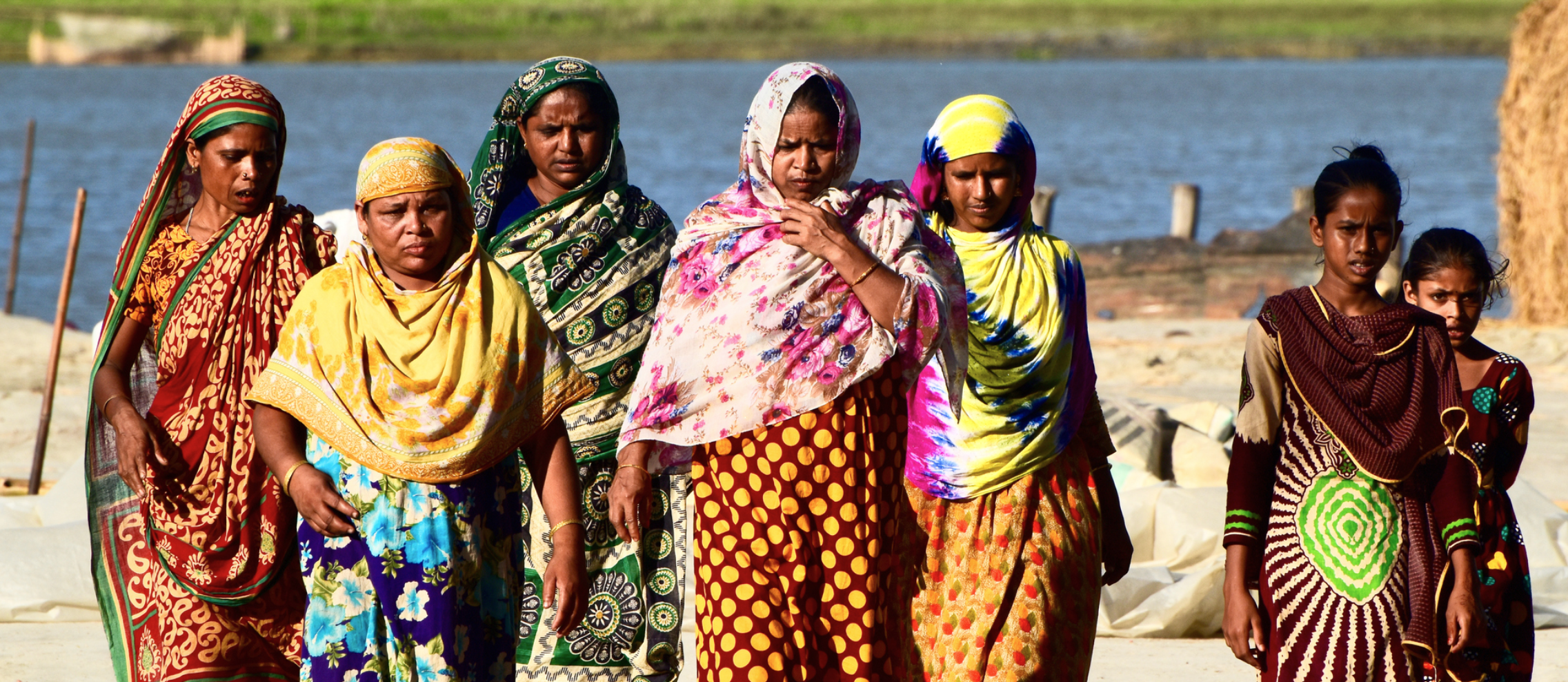
Forty journalists and twenty-four young communicators were trained in communicating locally led efforts to adapt to climate change during two regional training workshops that took place between 1-4 September 2023, in Rangpur and 22-24 September in Barisal, Bangladesh. The trainees were from Gaibandha, Kurigram, Rangpur, Bhola, Patuakhali, and Bagerhat – six highly climate vulnerable districts in north Bangladesh.
The workshops were organized by the Global Center on Adaptation’s Global Hub on Locally Led Adaptation and BBC Media Action, with the objective of increasing media coverage on existing locally led adaptation (LLA) efforts in Bangladesh while training young people for employment opportunities related to communicating LLA. Following the workshops each of the 64 trainees (40 journalists and 24 young people) will benefit from mentoring and support to identify employment opportunities in the field.
Research by BBC Media Action in Bangladesh earlier this year revealed that adaptation efforts by communities and individuals are often not reported or communicated as local media focus mainly on climate disasters and the international negotiations on climate change. Young people, meanwhile, are increasingly active on social media, and could play a key role in communicating community efforts and needs for more effective LLA.
The training focused on the role and importance of public interest journalism in communicating local adaptation needs and efforts; sourcing data and information from government and non-government stakeholders to develop stories; and packaging LLA stories in ways that will increase their chances of being selected for broadcast by national editors. Young people were also trained in technical aspects of digital content production.
Shahrin Mannan, Program Officer, GCA, described the important role of journalists in communicating how people experience climate change, and describing their contextualized responses. Describing GCA’s efforts on LLA, she also shed light on the difference between “local adaptation” and “locally led adaptation”.
Kazi Amdadul Hoque, Senior Director, Friendship NGO, described LLA interventions by communities living in Bangladesh’s chars (riverine islands) to deal with the constant threat of flooding; and pointed to sources of data and information for journalists to develop stories.
Dr. Md. Abu Sayem Deputy Director, Agriculture Extension Division, Rangpur, described the efforts of the Government of Bangladesh on climate smart agriculture techniques such as the provision of drought/flood/heat tolerant crop varieties and training on soilless and floating agriculture, that local farmers are increasingly using to tackle the impacts of climate change.
Mamun Chowdhury, Project Manager, Urban Development Program BRAC, described the efforts of GCA and BRAC to support communities living in informal settlements to develop People’s Adaptation Plans in Mongla to map and plan for climate threats. He encouraged journalists to report on locally led efforts.
Afroza Luna, Local Correspondent, Ekushey TV, Gaibandha, said she appreciated the training because it has given her a new climate change lens to develop stories with.
Md. Jakir Hosen, a young trainee from Kurigram, said the training on producing digital content from a climate perspective would enable him to produce more innovative content for his audience.
Hamidur Rahman Hasib, Maachranga Television, Bhola suggested field visits during training in future to give trainees firsthand experience of the climate realities and indomitable spirit of vulnerable communities to adapt.
Bishawjit Das, Head of Production and Creative Lead, BBC Media Action, noted that these training efforts are a first step in a longer journey together.
The content produced by the trainees will be showcased at COP28 in Dubai, UAE in December 2023.